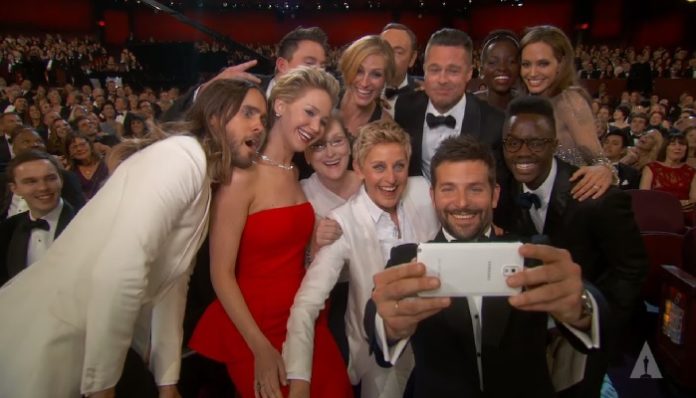
We all obsess about a thing or two. For me, a British band called Busted was my first love. Then there was Daniel Radcliffe who led me to a life-long obsession with Harry Potter. What followed was an extreme obsession with Bon Jovi. An all-consuming obsession that rather creepily led to me possessing a legit copy of Jon Bon Jovi’s fingerprints from a police station and his address! Bearing in mind that this was prior to the rise of social media, it was quite an impressive feat.
Why did I want to devour every single thing that surrounded my idols? Why did I spend money to own little pieces of them?
Because that’s what we’re doing when we buy that autobiography or fragrance. We’re trying to have a little piece of them, like the crowd who gathered to touch Jesus’ cloak. We’re dying to get a little closer to the divine, which is what celebrities are these days.
So why do we obsess over them?
Historians could point to Pharaohs, Emperors, and Queens and claim that our obsession has roots in the social order. The lower tier in this perceived hierarchy immerses themselves in the lives of the rich and famous as a way to feel closer to their luxuries. Or to dream of elevating to that level, which serves as a distraction from the monotonous and mundane life.
We can still see this at play when we’re happy to hear about a celebrity mess-up. Even though we enjoy owning the products they endorse, we love seeing them as “ordinary” mortals.
Another explanation could come from theologians. They would point to worship of the Gods and Idols and draw parallels with our worship of “Rock Gods” and “Pop Idols” and ponder if Celebrity Fandom is a kind of Religion. In Pete Ward’s introduction to Gods Behaving Badly: Media, Religion, and Celebrity Culture, he argues that “Like Greek mythology and the stories of the saints, celebrity stories are people with the incredibly beautiful and the hopelessly flawed, with angels and demons, saints and sinners, the venerable and the venal. Celebrity stories are in many ways like morality tales. They portray possible ways of being good or bad, faithful or unfaithful, ideal or not ideal.”
We increasingly use celebrities as our moral compass, especially when we identify our moral stances with the intersection of politics and celebrity culture. Psychologists could talk all day about how the answers may lie with an individual’s low self-esteem and poor mental health. They would cite how we aren’t happy with ourselves so we attempt to imitate our idols and submerge ourselves in their lives to escape our own. It’s a vicious cycle of obsessing to feel better, followed by feelings of inadequacy.
For me, however, it was about feeling connected to them because I loved them, even when I felt everything above in addition to depressive loneliness!
With today’s technology, celebrities’ lives are sold, shipped and displayed across our screens and social platforms almost instantly. Celebrity is a commercial market and we are the target with every cookie we consent to.
If you search for breastfeeding, you end up seeing an interview with Kristen Bell. If you like Marvel, you see a hunky picture of Chris Hemsworth. When you share a post by the NRA, you get a suggestion to add Donald Trump. If you follow Taylor Swift, you get a whole bunch of other suggested follows. And the list goes on.
People used to be paranoid about subliminal messages influencing them, but it has changed these days! It’s overloaded with power, and it works. They’re drowning us, yet we still thirst for more!
Many factors contribute to our obsession with celebrity culture, but at the root of it, history has shown that it’s nothing new. Humans have always observed the worship of ancient gods and held a long-time fascination with the aristocracy!
But for most of us, we simply desire to become more like the gods we admire and the rest is just good gossip!
Featured image via YouTube


















